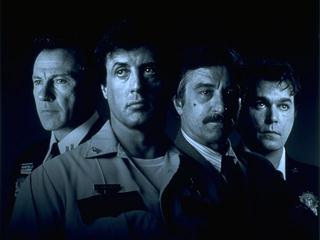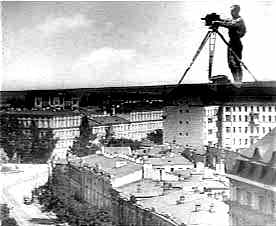Comandante
Step through the looking-glass and enter Fidel's 'Wonderland'
The Pitch:
Oliver Stone wants to give Fidel Castro the chance to express himself emotionally, politically and philosophically in front of an eager camera. His ideal is to watch Castro going through his daily life. His pitch is that Fidel gets to be both an actor and a documentary subject - but there-in lies the catch. Fidel can both expound and emote, he can justify his life's work for the camera, but he must also be at Stone's beck and call - he must answer the wide-ranging questions put before him.
Review-ish bit:
Fidel proves adept at doing all of these things. He has one other power granted too him though, beyond his existing ability to intimidate Stone with his physical presence, and to entrance him with his renowned charisma. Fidel can call cut at any time, just as Stone can. But he never chooses to.
If nothing else, this is an intriguing insight into Fidel the man. See him as dictator or see him as patriarch, as misguided or astute (and personally, i see him as all of these things

), it's fascinating just to watch the wiley old octagenarian operate.
No one could accuse Oliver Stone of being the most accute of political commentators, and his questions prove that, but his unfettered pursuit of understanding, his appreciation of the dynamics of conflict, and his respect for strength amongst uncertainty all combine to make this an effective documentary. His questions are sometimes wayward, but they do prompt an intriguing bredth of responses from Fidel, and manage to discomfort him and catch him off guard, without ever losing his consistant participation.
Stone filmed for three days. During that time he overcame his feelings of intimidation, asked the questions he wished to ask, and got part of his wish fulfilled to see the ageing idealist-authoritarian in action.
All of this becomes clear on Stone's expansive commentary contained on the DVD version of this semi-supressed gem. You get some sterling insights into some forgotten aspects of Cuban history and progression, and further insights into Stone's nature as well. From the fact that he went out and partied some nights (and was in a right state during the 'spontaneous' tours the next morning) you gather that he's not the most rigorous or dispassionate of men or documentarians. From his human connection with Fidel, you see why he's also brought out genuine responses from actors, audiences and dictators, and will most likely do so again.
It's frustrating that Stone doesn't really push Fidel on certain points, but instead launches into tangental lines of pursuit just when things look promising. He assures us on the commentary that he takes a harder line in a later documentary,
Looking for Fidel, which focused much more rigorously on recent incidents and political history. Stone's obvious regret at having offended Fidel during this later meeting shows that he has become emotionally involved with his subject, but his overall
appraisals of Cuba's past and present show he's not an apologist for the regime.
If anything, Stone is an anti-apologist for the US, and for other nations who he sees as overly aggressive in the pursuit of profit over the national-spirit and social-care that he does seem to hold in high esteem in Cuba.
He provides plenty of welcome refreshers in both the film and commentary on intriguing events like: the embargoes which pushed them into alliance with Communist USSR; the Cuban's non-profit defence of Angola against South African invasion; and recent Bush-admin attempts to paint Cuba with the WMD brush. Make what you will of these and other examples of what drives and forms Cuba to this day.
Fidel is a prolific and unremitting publicist for 'The Revolution', but it's fascinating to see him 'embody' it, striving to justify, or at least explain, every action, all apparently in the name of ensuring its legacy (in the eyes of Stone, the camera, and posterity). Stone may have an agenda too, but it's fascinating to see him letting it evolve.
My Verdict: Who wouldn't pay to see two bulls in a pen - if they've paid their own admission, and are discussing life and politics as well  .
.


 )
)

 )
)




























